#Trosseau dress
Text
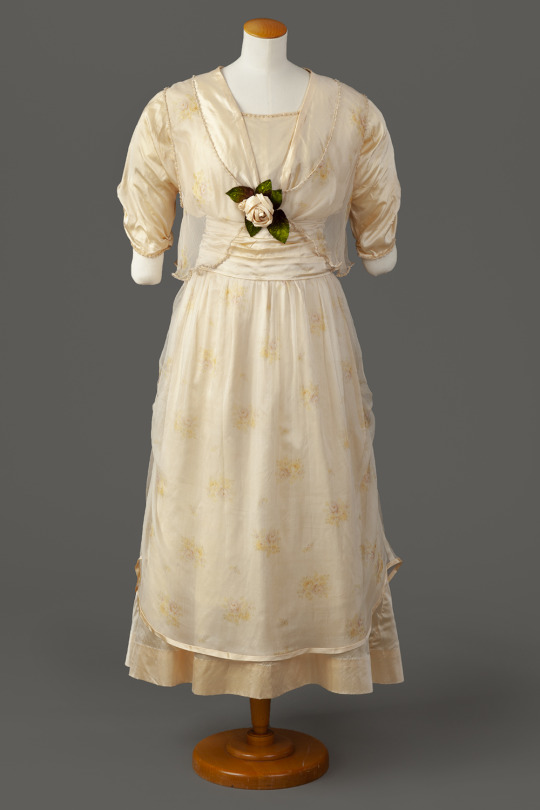

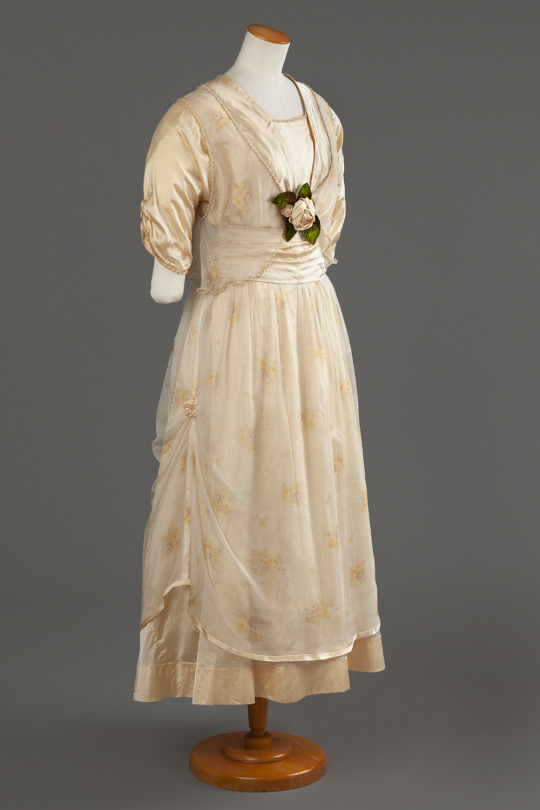
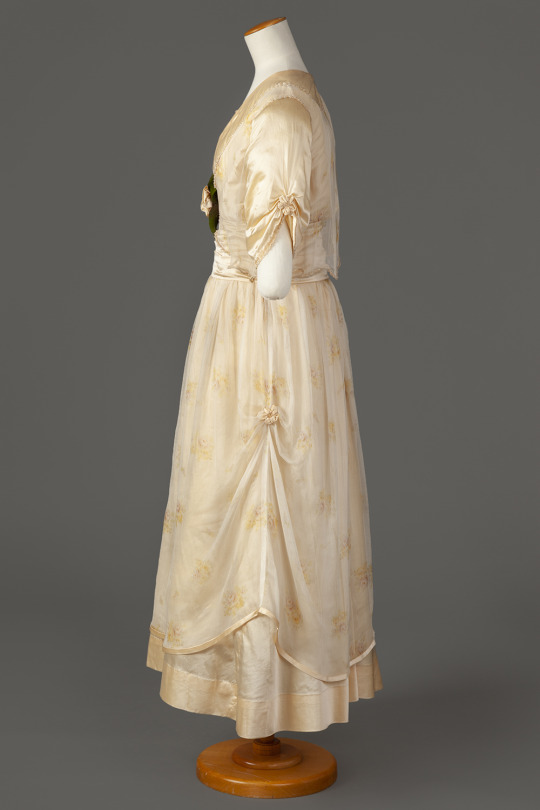
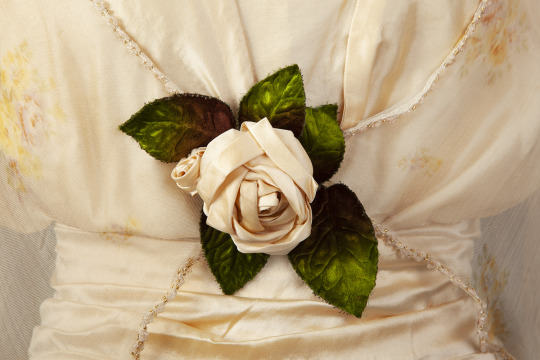
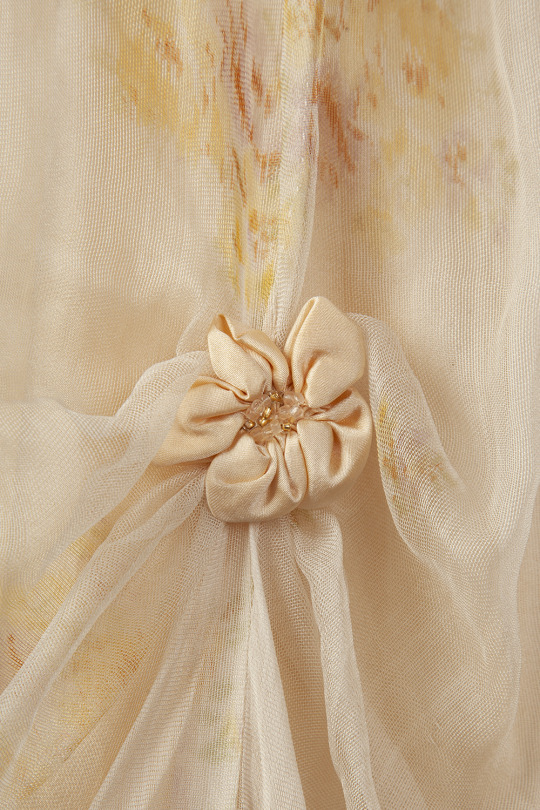
• Trousseau Dress.
Date: 1915
Medium: Silk satin, beads
984 notes
·
View notes
Text
Rebecca by Daphne du Maurier
This was commissioned by @automatuck9! If you'd like to commission a book, well, keep your eyes peeled! It's a thing that comes up every so often.
I have no idea how to make a spoiler free review of this book, to be quite honest with you. You can tread the back of the book and I suppose that’s not a lie about what you’re getting, but it’s also not an accurate representation of it. I mean all that in a positive way! I think this book is an immense amount of fun, it twists and turns and you can see the beats of later books being modeled after patterns set out in this extremely famous book that I suppose we could call a gothic romance, but also melds in aspects of the crime novel. It’s great, I think you should read it.
Spoilers follow!
This is like reading Gone Girl, but written in the 1930s. I’ve read this book multiple times, I damn well know what happens in the book, and yet still every time I read it, I am open-mouthed again at this crazy bitch. Du Maurier has such a fun way of writing bad women, and you really never know until the end whether or not Rebecca is guilty of anything. The first time I picked up this book, I had no idea what I was in for, and it was my first novel by du Maurier, so I didn’t know her general beats. It was not at all the novel I expected; I just recommended it to my mother because she loves crime novels, and I told her I couldn’t explain to her what she would like about it because to do that would ruin the entire book. It starts so much as an almost Cinderella romance, and then, these trappings of that idea are picked away at, one by one, and it almost asks this question of, ‘could Cinderella ever really take command, or does the evil stepsister always win in the end?’
Our narrator is never named. She is only ever the second Mrs. De Winter. The most we are ever told about her name is only that Maxim finds it interesting, and then it is never mentioned again, because her identity is unimportant. Unimportant even to her, in as she is telling us the story in flashback, she never thinks to mention it, even in the mouth of another person. From the moment we meet her, her identity is given to us, and to her,k in her association with other people. She is the timid little companion for Mrs. Van Hopper, she is the innocent and bashful little wife of Maxim, she is the inferior of Rebecca.
And Maxim wants this of her! I surprised myself, since I’ve read this multiple times, about how annoyed and angry I was that she didn’t have the full wedding, she didn’t get a trousseau for her marriage, and he’s so happy that ‘she doesn’t want all that’ but she doesn’t get a chance to want all that. He’s congratulating her before she gets to think about it. A wedding is one thing I guess, though if I’m marrying whatever level of moneyed and connected Maxim is supposed to be, you can be sure I am getting a large white wedding. But no trosseau? No new clothes and undergarments and linens and housewares that are meant to be truly hers, picked for her tastes? And she does want it, she asks sadly if there won’t be any any white dress or bridesmaids, and he shrugs it all off saying he had that before. It’s not about her, and she takes it. She wears her sad, worn clothes despite having more than enough money for new clothes, despite being through London where she could have gotten a few nice things.
His favorite thing about her is that she seems both unspoiled and unknowing. He even says that he doesn’t want her to have knowledge, and wherever she has a knowing expression, whenever she is canny to a situation, he doesn’t like it. He talks about her as if she were a child, even likening his desire for her not to have certain information as being similar to a father keeping ‘certain books under lock-and-key’. The narrator herself even seems aware of this, saying that he likes her in the same way that he likes Jasper (a dog) and people like dogs for this reason: They are servile, they will always love you, they bound about excited at your every move, but they never ask anything of you. It’s the same reason Mrs. Van Hopper liked her, that she seemed to have nothing of her own behind it, that she was something that could be projected upon.
She is a work of art in that way, isn’t she? People can make her into what they need and want her to be, in a way they never could Rebecca. Both of them played at being what people wanted them to be, but it was in two different ways: Rebecca was the manipulator, and every role she played was to her own ends, while our narrator is a little toy being batted around by cats for all of her life.
Going back to what I was saying about her having no identity, throughout the book she refuses to take ownership of being the new lady of the house, gently demurring to Mrs. Danvers, letting the housemaids make fun of her. Couldn’t be me, I could walk right in there and establish that however Rebecca did something isan’t relevant to me unless I ask, so don’t bring it up,but this is part and parcel of her whole issue. Other people have to project identity upon her.
I also want to talk about the fact that Mrs. Danver is clearly hung up on Rebecca (more on that later) but part of Mrs. Danvers feeling she has the freedom to directly oppose the narrator is the narrator’s own fault. In the beginning, Mrs. Danvers seems to be begging her to take the house in hand, even the first time the narrator is called about the menu, an she says that she’s sure it’s fine just as it is, Mrs. Danvers tells her if it would be better if she read the list. That if she wanted anything changed, she needs to tell her. There is a space to mark her sauce preferences. Mrs. Danvers is like a young German Shepherd, begging for a heavy hand like Rebecca’s to tell her what fucking color the sky is this morning--and such people exist--and our narrator cannot do it. She can’t be the mistress of the house. And so, like a young German Shepherd, Mrs. Danvers takes that incredible weakness of will and turns to destruction and defiance.
It is only after Maxim tells her that he never loved Rebecca, that of course he didn’t miss her, and in fact he killed her, that our narrator can begin to run the house like the mistress she is. This is her great triumph, the time that she can rise above what she has been and move into what she might be. It’s almost comical, when you read the book, there is this huge reveal, that Maxim killed Rebecca, that it wasn’t an accident, and instead of being rightly horrified, as the audience is, our narrator is immediately happy. Because it means that she had always won, that Rebecca was not the ghost that her husband truly loved while she was only an entertainment. It is an absolutely deranged response to this reveal, their life is a fucking shambles and her body returns, and her boat says that she will yet come back. And yet, because of the way our narrator is established for us, it feels completely correct to the character. In a sense, we even cheer for her. I know I was fucking delighted when she told Mrs. Danvers she didn’t care how Rebecca did something.
Some of the symbolism is so incredibly on the nose, but I didn’t find it offputting in any way. The title of Rebecca’s boat “I return.” the way the rhododendrons mimic the flames that will eventually consume the house, overpowering it, blood red. The flowers are intersting particularly, because they, in addition to being a tip of the hand about what’s going to happen to the house, are also Rebecca. The narrator mentions that she thinks of rhododendrons as a homey, domestic thing, in little pinks and mauves, and here these ones are, overpowering and blood red and refusing to be tamed, taking over the house.
I wonder if it’s not for nothing that de Winter is used as the last name, because of course it puts me in mind of Milady from The Three Musketeers, that cunning and ruthless woman who was also steps ahead of everyone else. Also note that in The Three Musketeers, Milady marries Lord de Winter as a means to an end, though somewhat more violent than our Rebecca. I don’t know if it’s connected or not, or if that only connection is du Maurier thought of that name and knew the vibes coming off of it would be immaculate.
I’ve seen readings of Rebecca where Mrs. Danvers and she were lovers, and Rebecca was a lesbian, and when I was reading this, I specifically was looking through this lens. I absolutely see where people are coming from on this one, and I don’t even oppose it: Mrs. Danvers intense devotion to Rebecca, the way Mrs. Danvers claims she despised men--Mrs. Danvers certainly treats the memory of her as a lost lover. I am extremely comfortable with a reading of Rebecca where Mrs. Danvers has romantic feelings for her.
But not mutually. I think Rebecca is not a lesbian, I think Rebecca is not anything like that, I think Rebecca does not have any attachment to sex or affection that is uncoupled from her ability to toy with other’s feelings and manipulate them into doing the thing that she wants. Did she despise men, or did she tell that to Mrs. Danvers because she knew what Mrs. Danvers wanted? She absolutely dwells and thrives in the shame and the hatred of it all, she enacts her violence on the house and on Maxim, wrapped in and aided by this exceptional amount of charm she possesses, because I think that’s the most fun thing about her being so mustache-twirling, is how desperately loved she was, how clever she is with people, how she manages it all so beautifully and effortlessly.
Do we think of Rebecca as a hero? I don’t know that I’d go so far as to call her a hero, in fact I don’t think that at all, as i reflect on it, but there is something about her that I cannot bring myself to hate. She’s a monster, she’s horrible person, she seeks power and destruction above everything else, but she’s also a society woman in Cornwall in the 30s, and there is something so transgressive about the way she bucks convention in a way that is not safe. We are not asked to think her “cool” the way we would a woman who wears pants or drives cars or whatever those minor transgressions are. She is literally going to set years of tradition and history aflame, and she refuses to die safe in her bed, because that would require her to rely on someone. Again, I am not saying this super laudable, and it certainly is not something that’s easy to live with. But I find it terribly compelling that she chooses to die on her feet. That she will destroy Manderley, even, at the end, and there was nothing a single person could have done to tame her.
I absolutely love the end. I love that, after it all, after Rebecca’s great trick is revealed and it seems that life will go back to normal, it’s only ever a joke, a brief reprieve from everything, because not only did Rebecca have cancer, but she was the cancer for Manderley, and even in death she reclaims Manderley. It was never even Maxim’s, from the moment they were married.
It always belonged to Rebecca.
15 notes
·
View notes
Photo
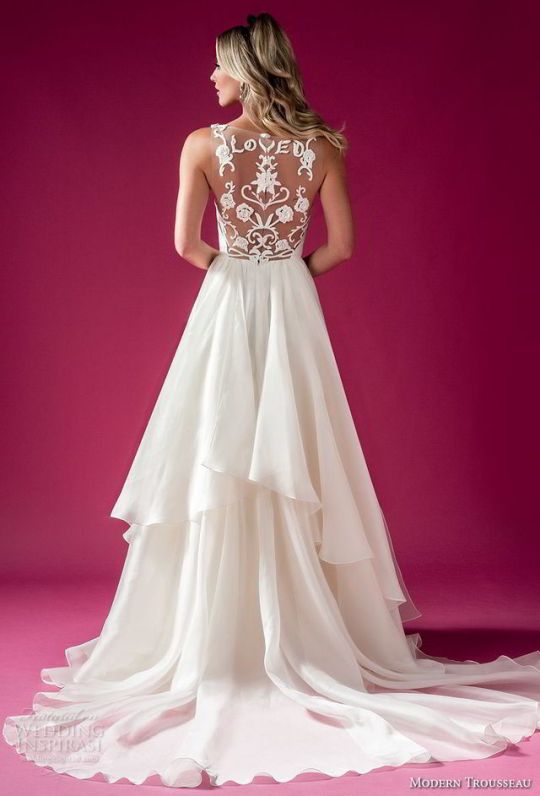
(via Modern Trousseau Fall 2018 Wedding Dresses | Wedding Inspirasi)
#wedding dresses#wedding#weddings#wedding dress#bridal#weddingdress#weddingdresses#bride#wedding gown#wedding gowns#a-line wedding dress#modern trosseau
51 notes
·
View notes